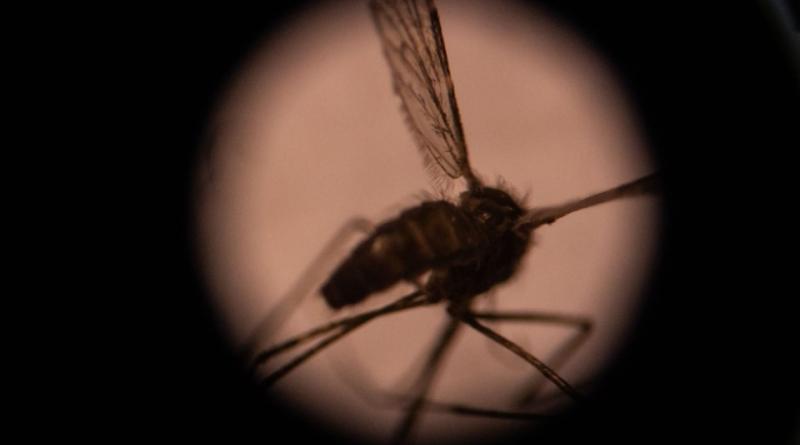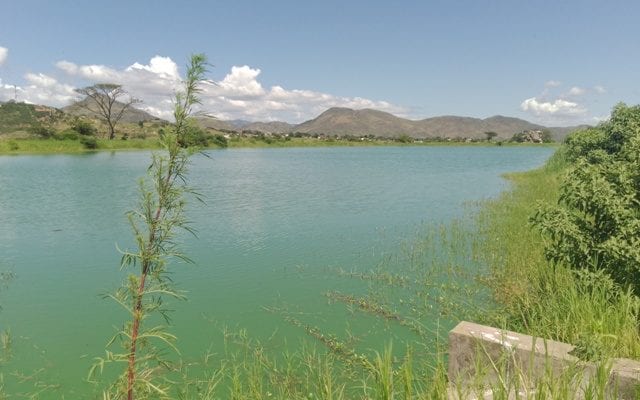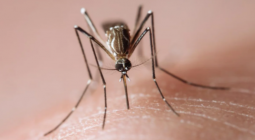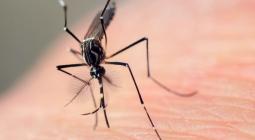How climate change is complicating Zimbabwe’s fight against malaria

A narrow, dirty footpath snakes along the edges of a small dam before breaking into a high density suburb in Zimbabwe’s eastern border city of Mutare.
Until recently, passersby have been traversing this trail – which connects two high density suburbs in the city – without paying much attention to the grimy pond. But of late this small dam and many other open water bodies in the city of Mutare are drawing a lot of concern among residents amid rising cases of malaria.
Residents are anxious as malaria causing mosquitoes are spreading to higher and colder areas like Mutare; a city nestled in Zimbabwe’s Eastern Highlands. The highlands extend for about 300 kilometres along the eastern border with Mozambique from the resort town of Nyanga in the north down to the farming town of Chipinge in the south.
As mosquitoes are spreading to new areas and cases of malaria – which still kills some 600,000 people a year – rising, experts have warned that this trend is linked to climate change.
“In some ‘locations’ [high density suburbs] such as Hobhouse, Dangamvura and Chikanga mosquitoes have become a menace,” a visibly worried Mutare city resident, David Mutambirwa told The Telegraph.

A few years ago, it was uncommon for deaths from malaria to occur in this city. In 2016, Mutare city authorities said, the municipality recorded only one death from malaria but the death toll rose to 31 in 2017, forcing the Zimbabwean government to declare the city a malaria zone.
But the municipality was not forthcoming with latest statistics on malaria cases and deaths in the city. And countrywide, there were 393 deaths in November 2020, up from 257 and 183 in 2019 and 2018 respectively, according to Zimbabwe’s Ministry of Health and Child Care.
Anecdotal evidence suggests that the warming temperatures and heavy rains coupled with various human activities are having an impact on the spread of malaria in the city of Mutare and other parts of the Eastern Highlands.
Across Zimbabwe, recorded temperatures have risen by at least 1 degree Celsius over the last 40 years of the last century, experts say. Though the amount of rainfall has decreased by about 20 per cent, the short summer seasons have been accompanied by heavy rains resulting in massive flooding. These storms, together with broken sewerage pipes in cities have aggravated mosquito breeding.
“The rampant indiscriminate deforestation, poor [urban] farming practices, inconsistent garbage collection, sand and gold mining in and around the city have created a conducive environment for breeding of mosquitoes, leading to malaria,” said Mutambirwa who is also the executive director and founder of Mhakwe Heritage Foundation Trust; a foundation advocating for heritage and culture preservation through research and documentation.
And Nicholas Mukundidza, a farmer in Mpudzi – a farming community about 50 kilometres south of the city of Mutare – told The Telegraph that late last year houses in his area were sprayed with chemicals to kill mosquitoes under the government’s indoor household residual spraying programme.
“They sprayed in our houses around November last year but mosquitoes are still there. I recently attended a funeral wake at a nearby village and we couldn't sleep the whole night because of mosquitoes,” Mukundidza said.
However, Charity Gamure Denhere, a climate change scientist in the Climate Change Management department in Zimbabwe’s Ministry of Environment, Climate, Tourism and Hospitality Industry told The Telegraph that climate change had significant impacts on health and human development in the country especially the poor majority.
“The majority of the population groups are disadvantaged by geographical or socio-economic factors and climate change is affecting human health in a number of ways, altering the distribution and ecology of some disease vectors such as mosquitoes. Consequently, the spatial and temporal transmission of diseases that comes as a result of these vectors are also altered,” Denhere said.
Denhere said increase in temperature was making conditions conducive for the breeding of mosquitoes resulting in increase in malaria cases and new incidences of malaria in some areas that were previously malaria free zones. “The anopheles mosquitoes which causes malaria survives well under incidences of high temperatures and with the temperatures generally warming up across the country, the cases of malaria have generally increased,” she said.
In terms of rainfall, Denhere added, currently as a result of climate change most areas now experience little and variable rainfall but with incidences of heavy and short lived down pours. “These heavy and short-lived downpours normally cause flash flooding thereby creating some contaminated water bodies which in turn are ideal breeding places for mosquitoes thereby increasing malaria incidences. There is therefore a direct link between climate change and growing cases of malaria,” she said.
Denhere said from the available models for 2020 to 2040, temperature projections were pointing towards an increase in temperatures across most parts of the country and rainfall projections showing a general decline in precipitation, however, with increased incidences of heavy but short-lived downpours.
“It is therefore highly likely that the cases of malaria incidences will also increase in most parts of the country as the conditions become more conducive for the breeding of malaria,” she said.
She said areas prone to malaria incidences were also likely to increase it was therefore apparent that drainage systems were well managed in the cities to avoid incidences of flash flooding in the cities which in turn creates breeding water bodies for the mosquitoes.
“In areas where stagnant water bodies are already there, spraying should be done constantly so as to kill the mosquitoes in their early stages and avoid further spreading. People should also be encouraged to maintain short grasses in their surroundings and close all potholes which are likely to become breeding grounds for mosquitoes,” she said.
Nonetheless, the city of Mutare deputy mayor, Farai Bhiza told The Telegraph that malaria was now a serious health risk in the city.
Bhiza, was quick to add that the municipality’s health department had embarked on massive anti-malaria campaigns in the city. “Our health education officers are on the ground carrying out malaria awareness campaigns,” Bhiza said.
At the same time, the city council has been clearing and cleaning banks of the rivers and streams which pass through the city. “We’re also spraying chemicals to kill mosquitoes in some houses around the city particularly in Dangamvura suburb. We’re also working in conjunction with NGOs to avail free mosquito nets to residents in areas like Sakubva suburb,” he said.
Bhiza said city had various programmes to manage the general effects of climate change, adding: “We want to create a city which is resilient to the effects of climate change.”






